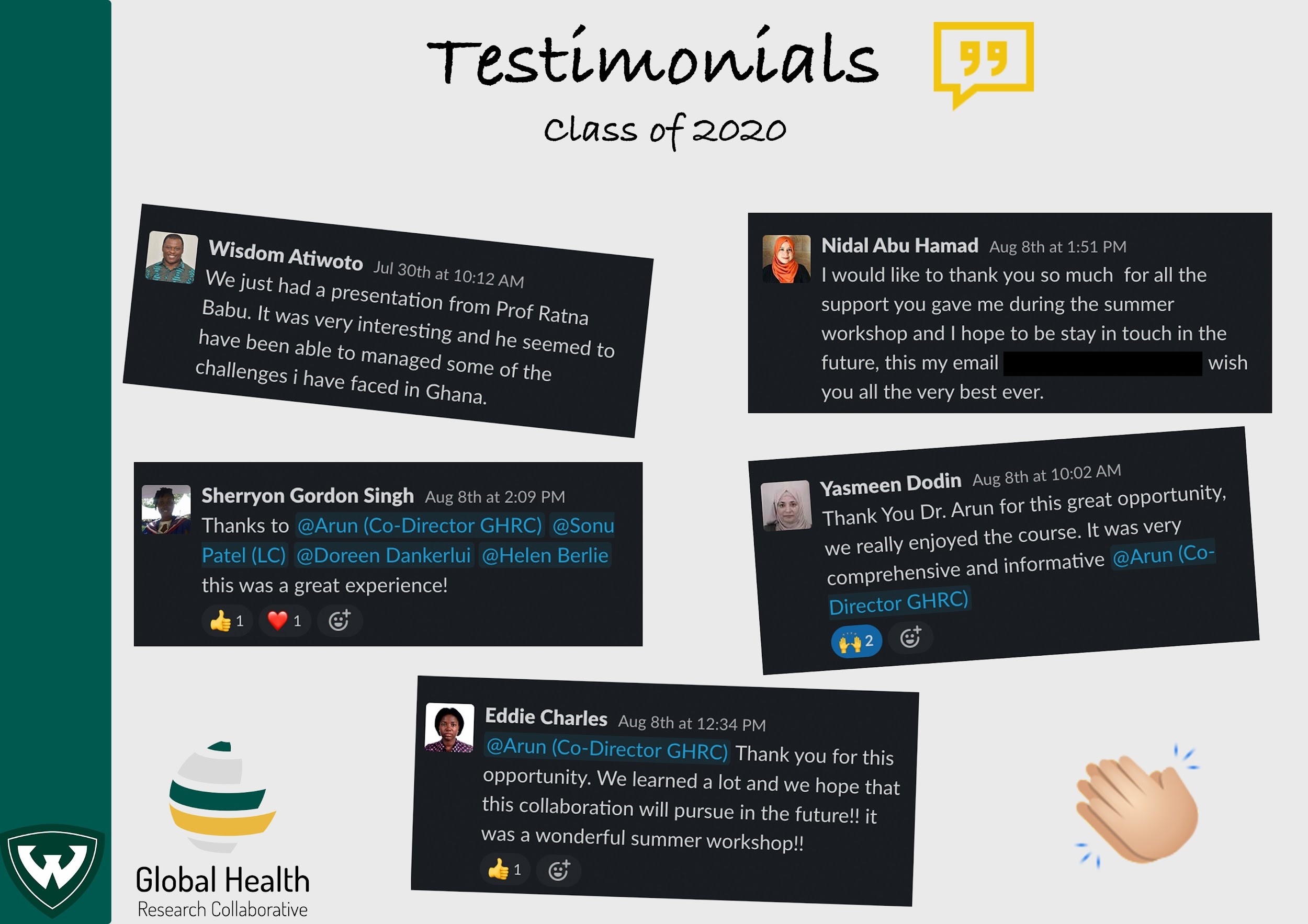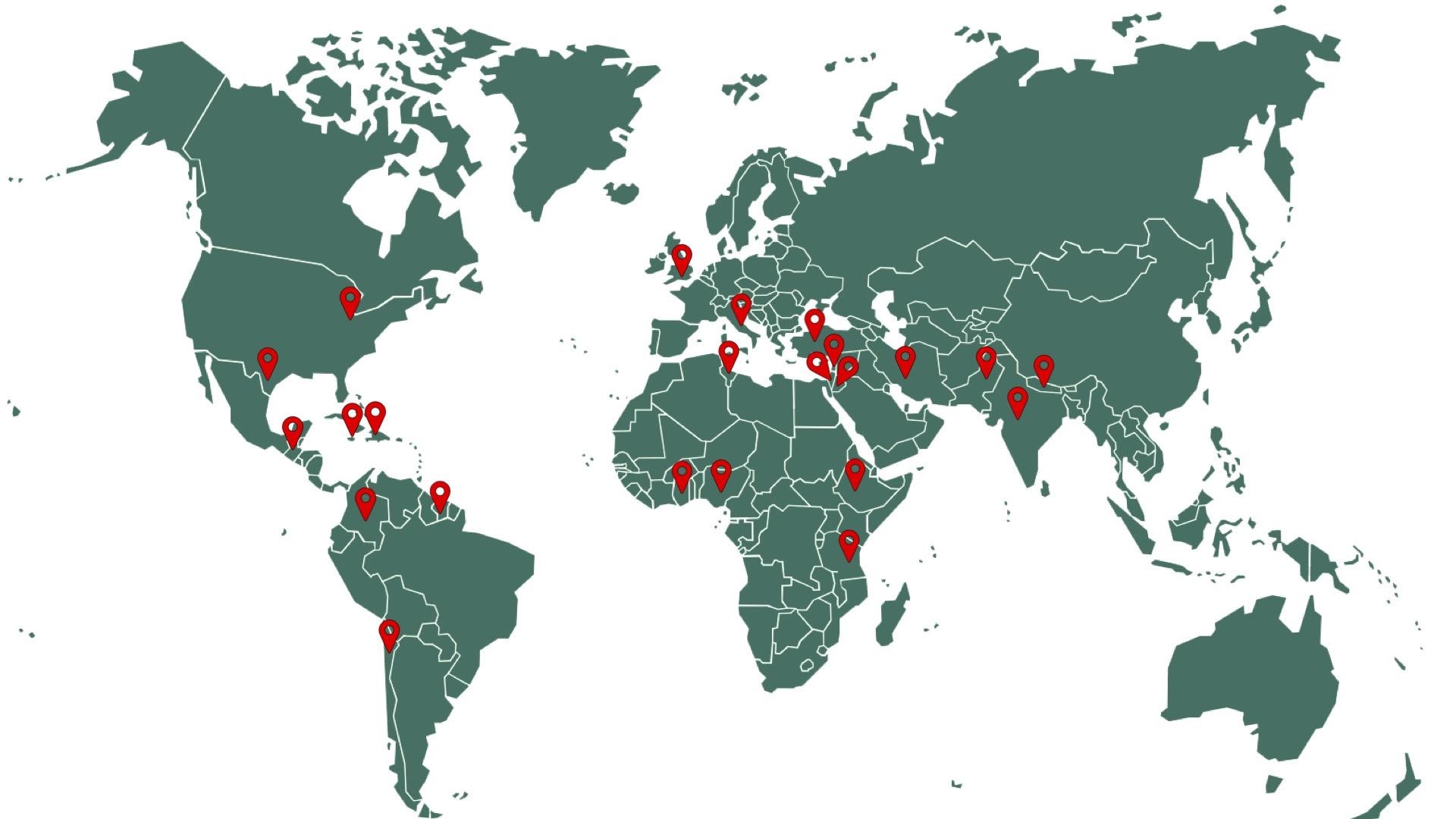
The Wayne State University School of Medicine’s Global Health Research Collaborative is gearing up to launch its second session of providing quality global health research education to local and foreign professionals early in their careers.
While there are many resources available for researchers in the West to study global health problems, the same is not true for low- and middle-income countries that often lack the funding, infrastructure and mentorship to accomplish sustainable projects. The Wayne State University Global Health Research Collaborative coalesced three years ago under the leadership of co-directors Vijaya Arun Kumar, M.D., M.P.H., associate professor of Emergency Medicine, and Paul Kilgore M.D., M.P.H., associate professor and director of Research for the Department of Pharmacy Practice.
The collaborative’s mission is to develop a global network of high-quality global health researchers capable of conducting top quality research aimed at improving health, research capacity development and evaluation of evidence-based interventions throughout low- and middle-income countries. A critical aspect of accomplishing these goals involves training and aiding local and foreign researchers early in their careers, and broadening the accessibility of the university's resources to international health care professionals interested in pursuing global health research.
“This program is a game-changer in global health research for promising researchers around the globe,” Dr. Kumar said. “Many of them would not otherwise have access to such immersive training. And because all health care is global, as evidenced by the COVID-19 pandemic, we are helping ourselves as much as helping these researchers.”
The program’s initial cohort of 40 health care professionals and researchers from 20 countries participated in the inaugural Summer Workshop in Global Health Research and Fieldwork Practices in 2020. The rigorous four-week-long curriculum equipped participants with the fundamentals of implementation sciences and provided participants anticipating careers in research with the tools needed for success. The curriculum taught the tools and methods for developing and designing a research study, writing successful research proposals and conducting independent research in an international setting to become global health researchers. Collaborative leaders hope to increase the number of participants in future cohorts.
“Additionally, the collaborative builds on the strength of researchers around the world who understand their own communities by providing the opportunity for connecting with world-renowned global health faculty at Wayne State University to be mentored in conducting successful research,” Dr. Kilgore said.

Originally designed to be hosted at the WSU School of Medicine, the organizers and instructors successfully shifted to a virtual course format because of the COVID-19 pandemic and subsequent travel restrictions. With the help of five student logistic coordinators and a core of more than 50 WSU, Henry Ford Health System and Detroit Medical Center faculty developed more than 70 hours of recorded lectures for the program. During the four-week period faculty hosted two-hour live webinars daily to reinforce content and conduct discipline-specific activities.
Participants began with foundational research skills, such as biostatistics, research ethics and clinical research development, as well as global health-specific considerations, including community-based participatory research. The COVID-19 pandemic influenced critical content surrounding vaccine development, infectious disease and interprofessional collaboration. Special topics included the use of artificial intelligence, creating large data registries and working with pharmaceutical companies presented by representatives from Google and Pfizer. There were four focused clinical research tracks: infectious diseases, emergency medicine, women and child health, and behavioral health. A longitudinal component saw students paired with faculty mentors based on a research project submission. The mentors assisted in refining the structure and implementation of the projects, which participants have begun to implement at their local institutions. The program is the first to deliver content specific for global health research education through daily live sessions with faculty, simultaneously providing live one-on-one personal mentoring.
“A large part of research training is mentorship and is usually limited to mentors who are from your own institution or those around you. Lack of quality mentorship is a void that seems to be prevalent globally, especially in low- and middle-income countries ,” Dr. Kumar said. “There are many qualified and highly educated individuals all around the world, but often it can be difficult to develop skills in a field as dynamic as global health research without appropriate guidance and mentorship. We hope our innovative platform for delivering education and mentorship can begin to bridge these gaps and provide the necessary connections needed for their individual growth and capacity development of their sites.”
The next rendition of the program will take place in the summer of 2022. Faculty interested in joining the program can learn more at the Global Health Research Collaborative. The collaborative also is recruiting student volunteers from all levels of education at Wayne State University. Anyone interested in global health research or wanting to develop experience in online education and program development can fill out the application here or email ghrc@wayne.edu. The deadline for applications is Oct. 31.
Anyone interested in sponsoring a part of the program can contact Dr. Kumar at vkumar@med.wayne.edu or Susan Miller at smiller@med.wayne.edu.